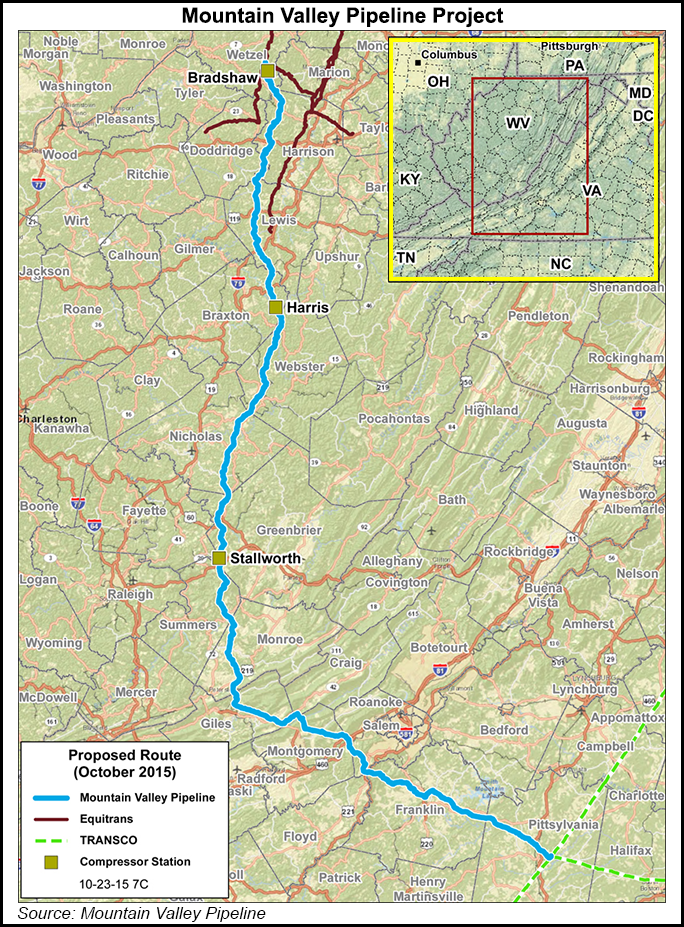Regulatory | Infrastructure | NGI All News Access | NGI The Weekly Gas Market Report
FERC Asks Feds to Further Review MVP Authorizations
FERC on Wednesday asked the U.S. Fish and Wildlife Service (USFWS) to revisit some aspects of the approvals issued to the Mountain Valley Pipeline (MVP), threatening to prolong the project’s voluntary work suspensions at points across the 300-mile route.

The Federal Energy Regulatory Commission requested in a letter that the USFWS “reinitiate consultation” related to some of the authorizations it issued under the Endangered Species Act (ESA).
The Commission primarily wants the Interior agency to more closely review MVP’s impacts on the candy darter, Roanoke logperch, Indiana bat and Northern long-eared bat. FERC noted that the candy darter fish has been listed as endangered since USFWS issued its Biological Opinion (BO) for the project in November 2017. Additional information has also emerged about the possible impacts to bats and the Roanoke logperch.
Environmental groups, including Wild Virginia and the Sierra Club, have already asked the U.S. Court of Appeals for the Fourth Circuit to stop all MVP construction while the court reviews a broader challenge to the project’s BO and Incidental Take Statement. The groups claim the authorizations are invalid.
In the petition to the Fourth Circuit, the environmental groups argued that the USFWS failed to protect the endangered Roanoke logperch. The groups also claimed that the agency didn’t set limits for the number of threatened or endangered bats that could be harmed or killed by the pipeline’s construction, an argument that caused problems for the similarly routed Atlantic Coast Pipeline.
Shortly after the challenge was filed earlier this month, MVP voluntarily suspended some work along the route in areas where construction could imperil federally listed species or risk modifying their habitats. The move appeared to head off a full work stoppage order from FERC, which agreed with the decision and said construction could not restart in those areas without permission from its Office of Energy Projects.
FERC made no mention of the environmental groups’ lawsuit in its letter to the USFWS on Wednesday.
The 2 Bcf/d MVP project would move Appalachian natural gas from West Virginia to Virginia and connect with the Transcontinental Gas Pipe Line to deliver more volumes to Southeast markets.
© 2024 Natural Gas Intelligence. All rights reserved.
ISSN © 1532-1231 | ISSN © 2577-9877 | ISSN © 1532-1266 |
